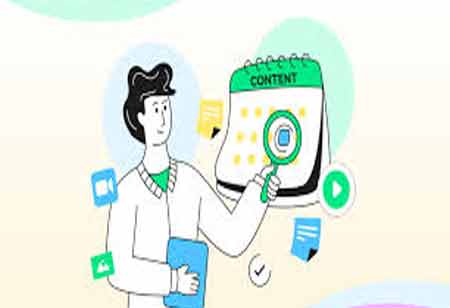THANK YOU FOR SUBSCRIBING
Be first to read the latest tech news, Industry Leader's Insights, and CIO interviews of medium and large enterprises exclusively from Education Technology Insights
AI Counseling Assistants as a Bridge Between Students and Support Services
AI-driven counseling assistants provide 24/7 mental health support for students, complementing human counselors, reducing stigma, and promoting academic success by addressing both emotional and educational needs.

By
Education Technology Insights | Monday, November 24, 2025
Stay ahead of the industry with exclusive feature stories on the top companies, expert insights and the latest news delivered straight to your inbox. Subscribe today.
Fremont, CA: The pressures on today's students are immense, and they often face significant mental health challenges. However, campus counseling centers are frequently under-resourced and can't meet the overwhelming demand for support. This is where AI-driven counseling assistants are emerging as a vital bridge, providing a scalable, accessible, and personalized layer of support that complements, rather than replaces, human counselors. These AI tools are helping to reduce stigma and promote holistic student engagement, ultimately contributing to academic success.
Providing Timely, Scalable, and Personalized Support
AI counseling assistants are a lifeline for students who need immediate support. Unlike traditional counseling services that are limited by office hours, these tools are available 24/7. A student experiencing a panic attack at 2 a.m. has an instant, anonymous resource to turn to for guided breathing exercises or a grounding technique. This round-the-clock availability is a game-changer, addressing the time and logistical barriers that often prevent students from seeking help.
AI assistants offer scalable support. A single human counselor can only handle so many cases, but an AI system can engage with thousands of students simultaneously, providing a personalized experience for each one. Using natural language processing (NLP), these tools can analyze a student's responses to offer tailored resources, from mindfulness exercises to cognitive-behavioral therapy (CBT) techniques. This personalized approach ensures that students receive relevant and timely guidance based on their specific needs and emotional state.
Complementing Human Counselors and Reducing Stigma
AI counseling assistants are not a replacement for human counselors; they're an essential complementary tool. They handle the initial triage and provide real-time, low-stakes support, which frees up human counselors to focus on more complex, high-acuity cases that require a nuanced, empathetic human connection. AI can perform initial screenings, analyze language patterns for signs of distress, and provide objective risk assessment data, all of which give counselors crucial information before a human-to-human session begins. This allows for a more informed and efficient use of a counselor’s time.
One of the most potent benefits of AI assistants is their ability to reduce the stigma around seeking mental health support. Many students are hesitant to speak with a human counselor due to fear of judgment or social repercussions. An AI assistant provides an entirely anonymous and private space for individuals to explore their feelings without social pressure. This sense of safety and anonymity lowers the barrier to entry, encouraging students to take the first step toward getting help. By normalizing the act of seeking support in a private setting, AI can serve as a stepping stone that eventually leads students to connect with a human professional when they're ready.
Student well-being and academic success are deeply intertwined. A student struggling with anxiety, depression, or stress is likely to experience a decline in their academic performance. By providing accessible mental health support, AI counseling assistants contribute to a more holistic student experience. When students feel emotionally supported, they're better able to focus on their studies, manage their time, and engage with their coursework.
AI tools can also contribute to academic success by providing more than just mental health support. They can assist with time management strategies, offer tips for reducing test anxiety, and provide resources for improving focus and study habits. This dual-pronged approach—addressing both mental health and academic skills—fosters a more resilient and engaged student body. The seamless integration of AI into a student's digital life makes it a natural and non-intrusive part of their routine, ensuring that they have the support they need to navigate the complexities of college life and thrive both personally and academically.







